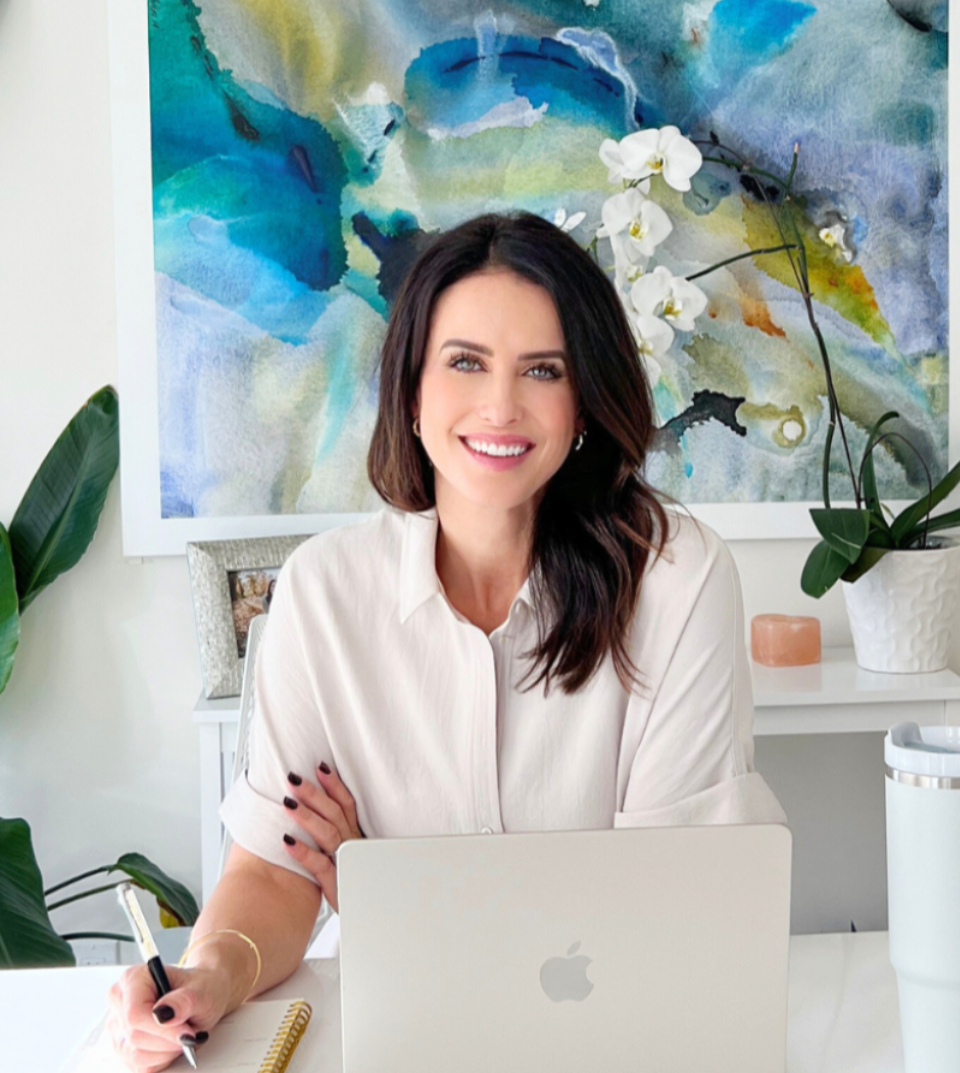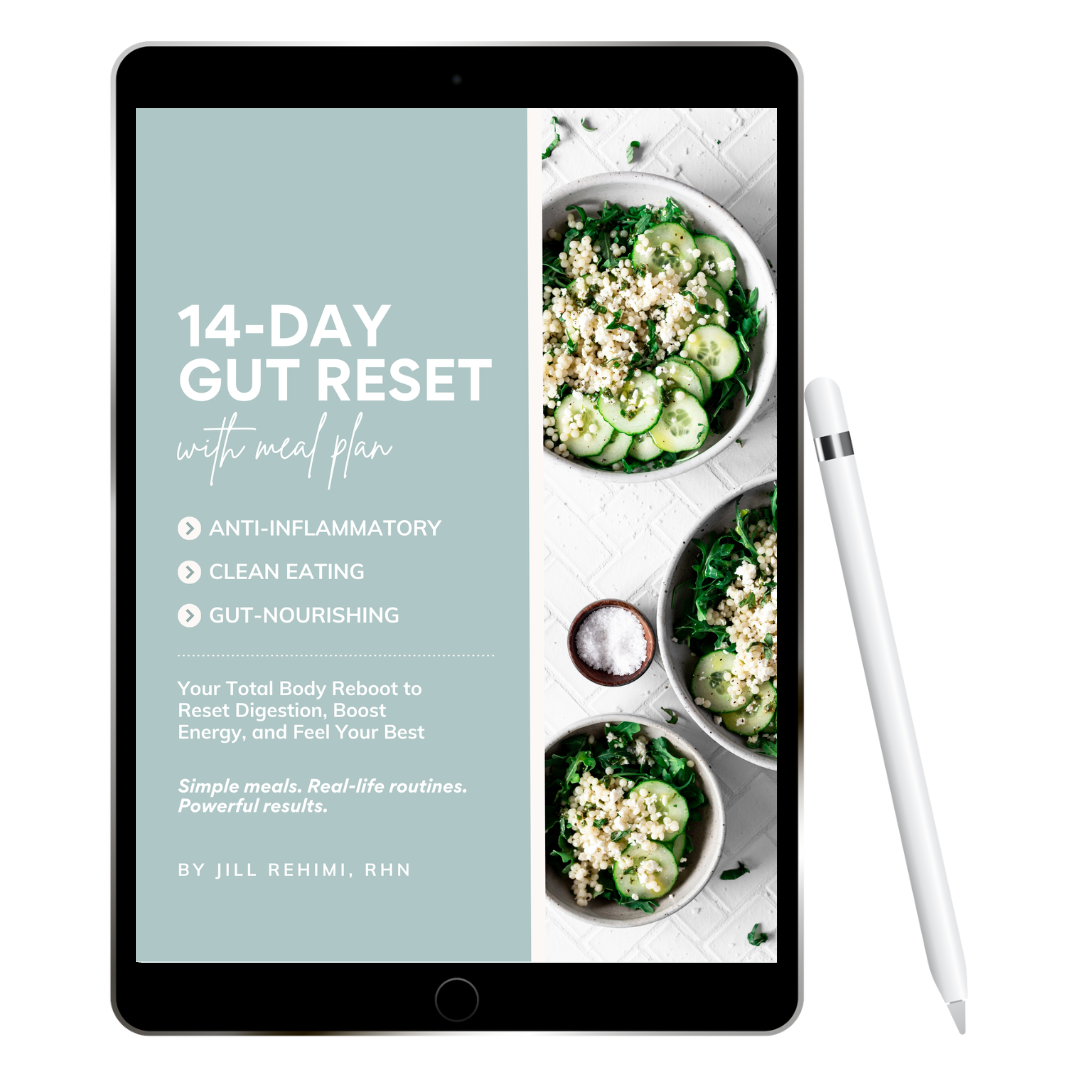What Your Bloat Is Telling You (And How to Calm It)

By Jill Rehimi, Registered Holistic Nutritionist
Because it's not just about what you ate...
You start the day feeling fine, but by mid-afternoon your stomach feels tight, uncomfortable, maybe even distended. Pants don’t fit the same. You feel sluggish, puffy, and a little frustrated — especially if you’ve been eating well.
Sound familiar?
Bloating is one of the most common complaints I hear from women — and one of the most misunderstood. You might assume it’s just “something you ate,” but often, bloat is your body’s way of asking for deeper support.
Let’s take a look at what your bloat might actually be saying — and how to respond with calm, supportive habits instead of restriction or another cleanse.
1. Is it Your Gut, or Just a Gut Reaction?
When your digestive system is inflamed, sluggish, or imbalanced, it doesn’t break down food efficiently. That means more fermentation, gas, and discomfort — especially after meals.
This can happen when:
- Your gut bacteria are out of balance
- You’re constipated or not going regularly
- Your digestion is slowed by stress or burnout
Try this:
→ Add 1–2 tablespoons of apple cider vinegar or lemon juice to water before meals. It supports stomach acid and can gently aid digestion — especially if you tend to feel heavy or bloated after eating.
2. You Might Be Swallowing Air Without Realizing It
Bloating isn’t always about what’s going on in your gut — sometimes, it’s about what’s going on around your meals.
If you’re eating rushed, multitasking, or anxious, you might be swallowing excess air — and that can create bloat even if the food was “clean.”
Try this:
→ Before you eat, take 3 slow breaths and set down your phone. This small ritual shifts your body into “rest and digest” mode, so your nervous system can support smoother digestion.
3. Some Foods Are Healthy… But Harder to Digest
Cruciferous vegetables (like broccoli, kale, and cabbage), beans, and even sparkling water can all trigger bloat — especially if your digestion is already sensitive.
That doesn’t mean you have to cut them out — just that your body might need more support to tolerate them.
Try this:
→ Cook your veggies instead of eating them raw.
→ Add carminative herbs like ginger, fennel, or cumin to meals. These warming ingredients help relax your digestive tract and reduce gas.
4. Are Your Hormones at Play?
If your bloat worsens around your period, ovulation, or when you’re stressed, it’s likely hormone-related. Estrogen can cause water retention and changes in digestion — and cortisol (your stress hormone) slows things down too.
Try this:
→ Stay hydrated and eat mineral-rich foods (leafy greens, sea salt, pumpkin seeds).
→ Build meals that balance blood sugar with protein, healthy fat, and fiber.
When your hormones feel stable, your digestion does too.
Bloat Is a Signal, Not a Flaw
The next time you feel bloated, instead of jumping into restriction mode, ask:
What’s my body trying to tell me?
Bloat isn’t something to fight — it’s something to work with. And when you respond with gentleness and the right support, it starts to shift.
Ready for a Reset That Calms Bloat (Without Extremes)?
The 14-Day Gut Reset was designed to help you feel lighter, clearer, and more at ease in your body — with food-based tools that support digestion and reduce inflammation gently.
✨ It’s a real-life reset that fits your day — no harsh rules, just rhythms that work.
👉 Check it out here →
You Might Also Like:
- Let’s Talk About Constipation (Because No One Else Is)
- Cravings Out of Control? It’s Not About Willpower
- Why Am I Always Tired (Even When I Sleep?)
About the Author
Jill Rehimi is a Registered Holistic Nutritionist who helps busy women reset their gut, energy, hormones, skin, and weight — naturally. Her approach is rooted in sustainability, not extremes, and built to work with real life.
She supports clients through personalized 1:1 coaching and her 14-Day Gut Reset — a self-paced total body reset to help you feel lighter, clearer, and more in sync from the inside out.
→ Start your Gut Reset here
→ Book a free consult call with Jill to explore 1:1 coaching




